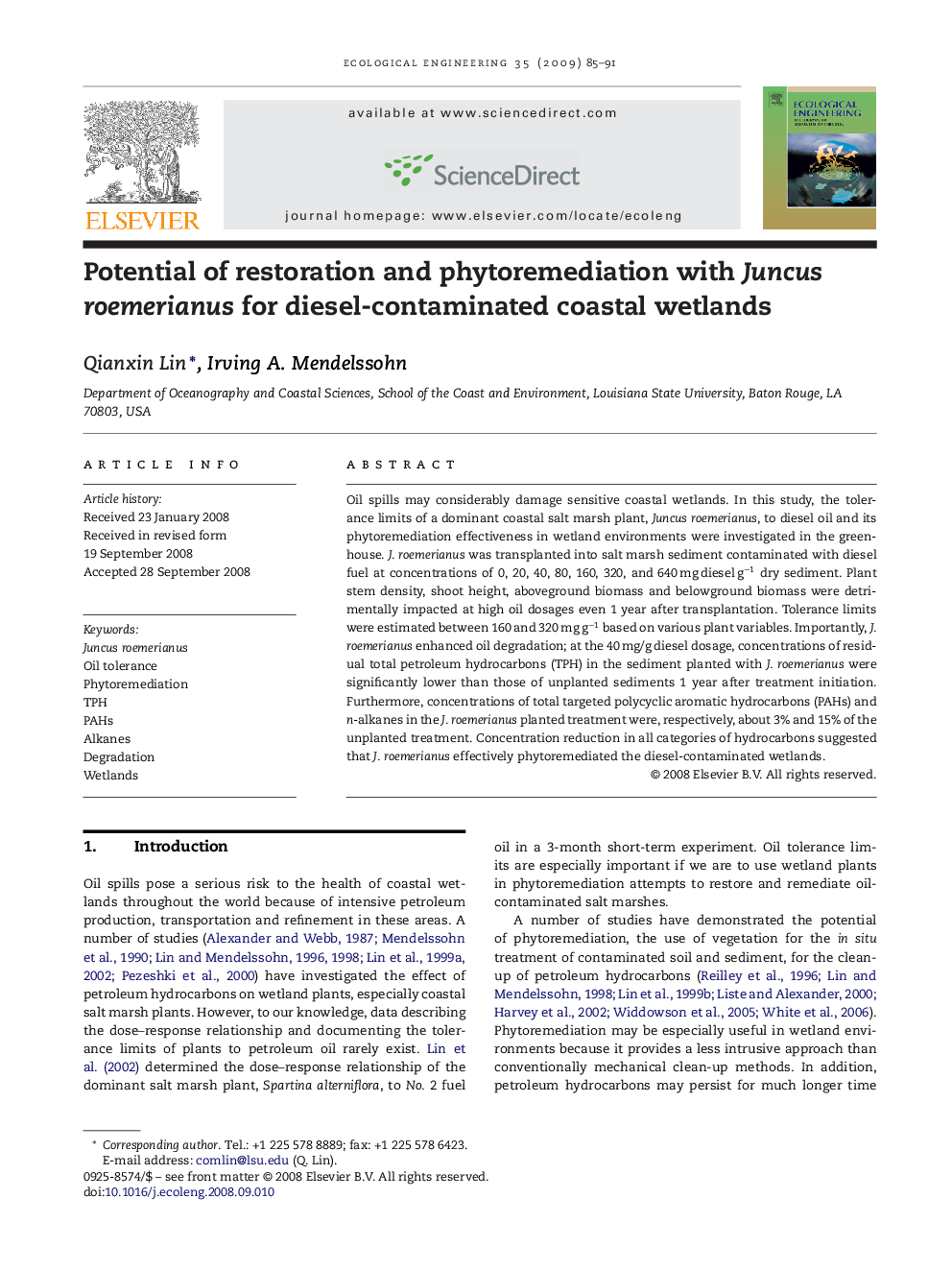| Article ID | Journal | Published Year | Pages | File Type |
|---|---|---|---|---|
| 4390664 | Ecological Engineering | 2009 | 7 Pages |
Oil spills may considerably damage sensitive coastal wetlands. In this study, the tolerance limits of a dominant coastal salt marsh plant, Juncus roemerianus, to diesel oil and its phytoremediation effectiveness in wetland environments were investigated in the greenhouse. J. roemerianus was transplanted into salt marsh sediment contaminated with diesel fuel at concentrations of 0, 20, 40, 80, 160, 320, and 640 mg diesel g−1 dry sediment. Plant stem density, shoot height, aboveground biomass and belowground biomass were detrimentally impacted at high oil dosages even 1 year after transplantation. Tolerance limits were estimated between 160 and 320 mg g−1 based on various plant variables. Importantly, J. roemerianus enhanced oil degradation; at the 40 mg/g diesel dosage, concentrations of residual total petroleum hydrocarbons (TPH) in the sediment planted with J. roemerianus were significantly lower than those of unplanted sediments 1 year after treatment initiation. Furthermore, concentrations of total targeted polycyclic aromatic hydrocarbons (PAHs) and n-alkanes in the J. roemerianus planted treatment were, respectively, about 3% and 15% of the unplanted treatment. Concentration reduction in all categories of hydrocarbons suggested that J. roemerianus effectively phytoremediated the diesel-contaminated wetlands.
